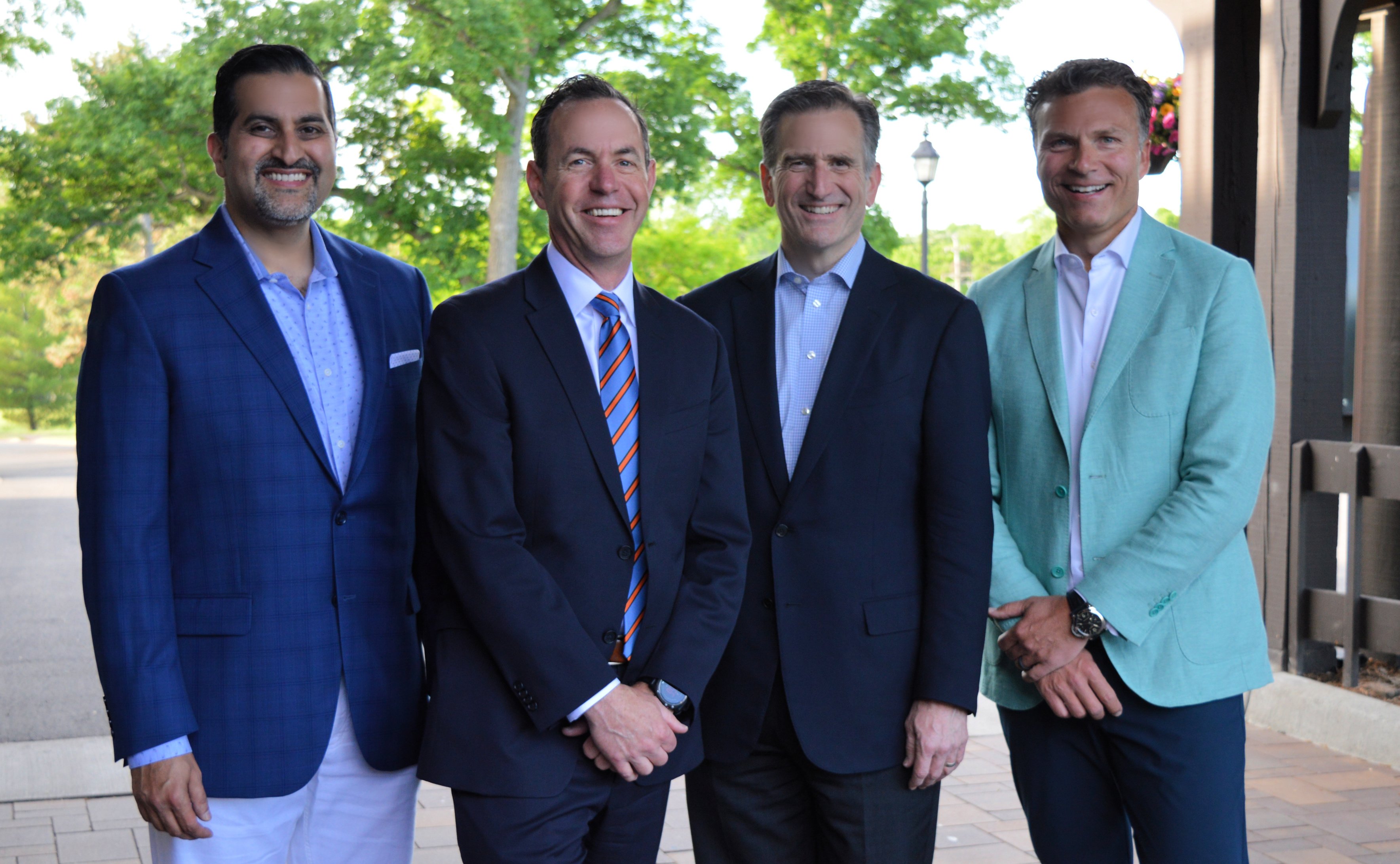Mental Health Awareness Month helped shed a spotlight on a prevalent, yet highly stigmatized, issue – for every 10 people in a doctor’s office, 7 are there seeking care for reasons related to behavioral health. Whether it’s our constantly connected workforce or early adoption of social media platforms, today’s plugged-in generation is at a higher risk for anxiety, depression, and addictive behaviors. As a result, healthcare companies seek new and convenient ways to promote mental wellness and provide treatment. Our panelists with expertise across the spectrum of behavioral health include Eric Hamborg (MOBE), Peter Bridges (Ginger), and John Waters (Optum).
Perspectives on Behavioral Health
- MOBE aims to find a population that is hidden, comprised of people who are typically in and out of care systems and not getting better. The advice? Keep it simple: Eat, sleep, move, smile.
- Optum’s Employee Assistance Program is touted as wellness for shoulders and above. They provide help across the entire spectrum, from undiagnosed employees seeking to feel better to those with a diagnosed condition.
- Ginger is an on-demand behavioral healthcare system available 24/7. Within 54 seconds of downloading the app, the user is typically chatting with a 3-person care team.
Technology Challenges
- It’s difficult to help people when they’re unwilling to come forward, but tools like Google AI and TensorFlow are helping us move towards proactive reach out.
- On the flip side, it’s a challenge to respect the anonymity of the individual and family while providing care through any number of digital programs. Privacy issues often slow or entirely prevent proactive outreach.
- Digital care platforms are trying to avoid becoming a point solution – it’s difficult to seamlessly embed in health plans and organizations.
Impacts to Behavioral Health
- We’ve not fully seen or understood all of the impacts of social media on behavioral health. As depression and anxiety levels increase, we’re also realizing new diagnoses like “gaming disorder,” which is the compulsive use of video games.
- Access to care is a major challenge, where we’re experiencing a shortage of psychiatrists by 65,000…plus the existing workforce is retiring!
- People are losing their purpose in life – social media is greatly contributing to this phenomenon, as we get lost in other people’s lives.
- Generally, people aren’t making great choices…eating late at night, staying up late, and skipping exercise are all too common. Less than 3% of the population can function on under 6 hours of sleep per night.
Behavioral Health Trends
- The top three areas of need within behavioral health are (1) relationship issues, (2) work stress, and (3) financial issues.
- Behavioral health treatment is trending towards creating greater accessibility. People are yearning for help, but can’t always come forward. By offering care outside of normal office hours, we are able to slowly remove the stigma of getting help. Plus, people are increasingly preferring digital care to in-person visits.
Closing Thoughts
While still stigmatized, mental health awareness is increasing and treatment options are expanding. The number one way we can make a difference is to let people know it’s okay if they’re struggling – we can work together to get help and move towards greater acceptance.
Extra Credit
Change or Die. “All leadership comes down to this: changing people’s behavior. Why is that so damn hard? Science offers some surprising new answers – and ways to do better.” Read the article or purchase the book for the three keys to change at work and in life.
2019 Workforce Attitudes Toward Behavioral Health. In Ginger’s annual report, over 1,200 U.S. workers were surveyed to discover their current attitudes toward behavioral health and whether workplace programs are meeting their needs.
WHO Recognizes Video Game Addiction as a Legitimate Disorder. “Studies show that those who are vulnerable are unable to stop playing, even when it interferes with their lives.”
Anthony Bourdain’s Death is Part of a Disturbing Trend in the US that’s Getting Much Worse. CDC data shows that suicide rates in the U.S. have risen 28% in less than 20 years, influenced in part by celebrity deaths.
